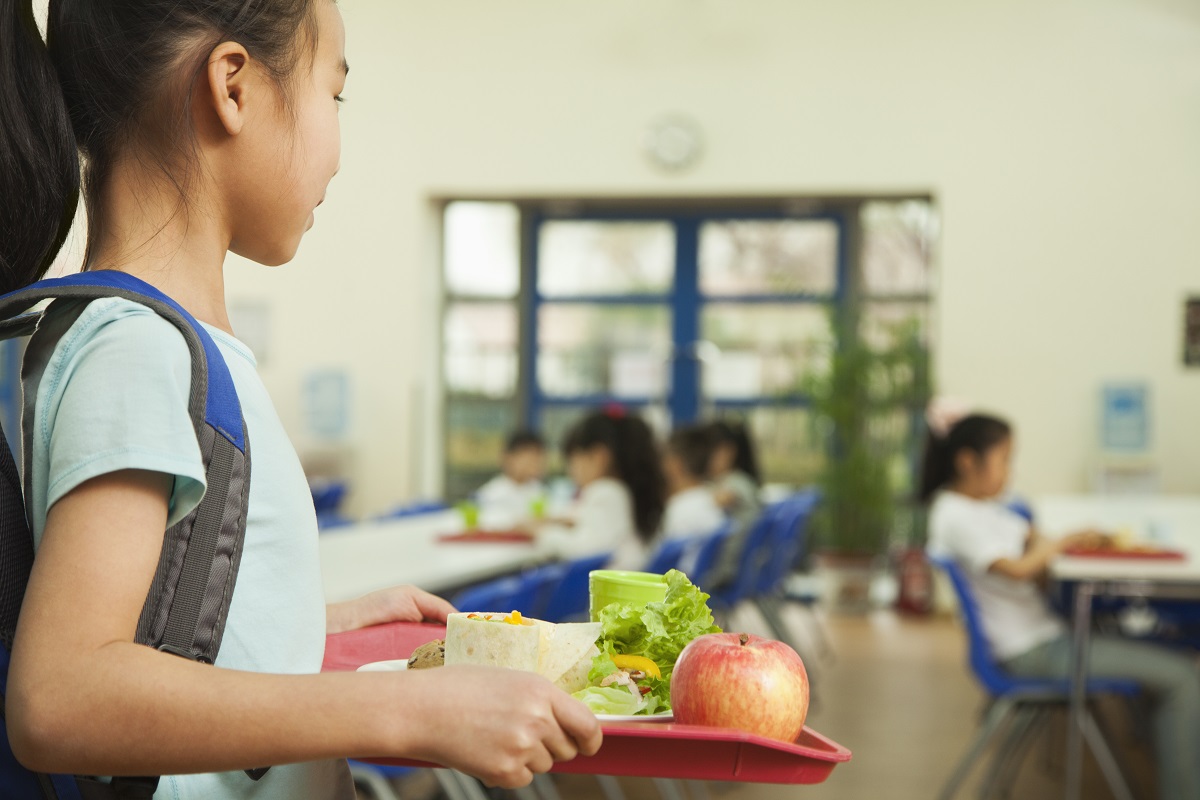California’s largest school districts have made significant inroads in providing culturally diverse, plant-based school meals to students, according to a recent report from Friends of the Earth, a nonprofit that advocates for environmentally sustainable practices.
Plant-Based Trends in California’s School Lunches shows that availability of healthy, plant-based lunches increased 60 percent in five years from just 7 percent of menu options in 2019 to 11 percent in 2023.
Many plant-based options that have been introduced include culturally diverse options. Forty-one new plant-based entrées added in just the past year include options like chana masala bowls, vegan tamales, tofu ramen and veggie falafel wraps.
“It is important for students feel valued, welcome and excited about the meals we prepare and serve. Many students in our district have vegetarian or meatless practices and other students prefer vegetarian meals for religious or other familial customs, so incorporating plant-powered menu items into our cycle makes sense,” said Lisa Vorce an administrative dietitian for Twin Rivers Unified School District. “As a registered dietitian and a school nutrition specialist, I use new vegetarian or vegan options to introduce the concept of plant-powered eating and promote healthy school meals. Introducing and promoting the fantastic benefits plants play educates and encourages students to incorporate more vegetables including legumes, nuts and seeds into their healthy meals.”
According to the report, the increase can be largely attributed to high and middle schools, where 56 percent of campuses offered plant-based menu options each day in 2023 compared to 36 percent of schools in 2019. However, elementary schools have also seen significant growth, with 60 percent having offered weekly plant-based weekly options in 2023 compared to 16 percent in 2019.
Plant-based vegan bowls and specialty items, which are often scratch-cooked and made with whole plant-based foods, landed in the top 10 school lunch offerings for the first time, and specialty vegetarian entrées were ranked 11th, rising from 23rd in 2019. Vegan and vegetarian options accounted for six of the top 15 lunch items served in 2023, according to the report.
The report attributes the rise in plant-based offerings to the significant policy and financial support provided by the state for healthy and scratch cooked meals as well as the availability of technical assistance from various nonprofits and organizations.
California became the first state in the 2022–23 school year to offer universal school meals (breakfast and lunch) statewide. In 2021–22, lawmakers committed to allocating $650 million each year to the universal free meal program, and in the 2022–23 budget, provided an extra $600 million toward a grant program to upgrade schools’ kitchen infrastructure and training and another $100 million for a grant program to promote the best food-procurement practices, such as buying California-grown produce and providing options for students with dietary restrictions. And in 2022, the state was awarded $25.5 million followed by an additional $52.8 million in 2024 to fund hundreds of farm to school projects, prioritizing organic and climate-smart school meals.
Despite the gains highlighted in the report, about 25 percent of districts still do not offer plant-based entrées and another quarter only offer nut butter and jelly as a plant-based option, leaving many students without access to adequate nutritious, plant-based school meals. Additionally, highly processed meat items are still prevalent, representing 14 percent of all menu offerings, the report states.
In addition to furthering support and increasing funding farm to school programs, plant-based food vendors and kitchen staff training, updating kitchen infrastructure and other recommendations, the report also calls on the United States Department of Agriculture (USDA) to make it easier for districts to offer plant-based entrées like tofu, lentils, veggie burgers and plant-based nuggets by making them available through the subsidized USDA Foods Program.





